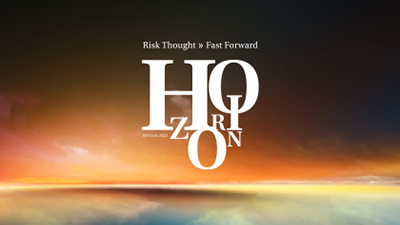Many insurers including insurance brokers will now be able to provide insurance services for Russian crude oil shipments to countries which are not part of the Price Cap Coalition provided that the price of the Russian crude oil cargo from the time it is loaded until it has cleared customs at the port of destination is at or below $60 per barrel.
The EU, G7 and Australia (the “Price Cap Coalition”) have recently introduced legislation and guidance effective 5 December 2022 intended to maintain the supply of Russian oil to world markets whilst at the same time reducing Russia’s earnings from its oil exports (the “Price Cap Scheme”).
Under the Price Cap Scheme, various insurers including insurance brokers will now be able to provide insurance services for Russian crude oil shipments to countries which are not part of the Price Cap Coalition provided that the price of the Russian crude oil cargo from the time it is loaded until it has cleared customs at the port of destination is at or below $60 per barrel (the “Price Cap”). A separate price cap will be introduced on 5 February 2023 for Russian petroleum products.
Ships with Russian crude oil on board on the 5 December commencement date may continue to lawfully perform the voyage even if the cargo has been sold at a price above the Price Cap if the voyage will be completed and the cargo offloaded by 19 January 2023.
Rules for insurance of Russian oil shipments
Insurers, insurance brokers, shipowners and charterers will now be required to check the price of Russian oil cargoes on board ships they own, charter or insure. These checks will take the form of contractual attestations provided by their contractual counterparties stating that for the relevant period the price will not exceed the Price Cap.
A Cargo owner or shipowner or Charterer that intends to transport Russian crude oil cargoes after 5 December will now need to provide its insurance service providers with an attestation that it will not for the duration of the period of insurance carry Russian oil cargoes which have been sold at a price that for the period during the voyage has exceeded the Price Cap. This attestation will be required for all types of Marine insurance.
Insurance cover for the carriage of Russian crude oil loaded after 5 December 2022 and petroleum products loaded after 5 February 2023 is dependent on various insurers complying in full with the requirements of the price cap schemes, including the provision of appropriate attestations. Insurers will be required to withdraw cover where there are reasonable grounds to suspect that the carried cargo was purchased at a price greater than the price cap..
Price Cap is part of the sanction regime
Under the Price Cap scheme, those persons that are subject to the jurisdiction of the EU, G7 and other coalition partners such as Australia will be prohibited from transporting and/or providing services (including insurance services) that enable the transportation of Russian origin crude oil and oil/petroleum products unless it has been sold at or below the Price Cap. The prohibition on services provided by a service provider based in an EU, G7 or other coalition partner jurisdiction extends to shipments by or to third countries that are not part of the EU / G7 coalition and to that extent will have an extra-territorial effect.
Please note that various price cap schemes largely mirror each other but there are significant differences between them. For example, the period during which the Price Cap must apply to benefit from the EU Price Cap scheme is longer than under the equivalent UK and US legislation. Under the EU scheme even where the oil has cleared customs at the third country destination in circumstances where it then “…becomes seaborne again without being substantially transformed into a different good in line with non-preferential rules of origin. (i.e. without being refined) … the price cap will still apply.”
Again, parties are expected to obtain appropriate attestations of cargo price the nature of which will depend on which Tier they fall into. The definition of the Tiers by the EU is the same as that adopted by the UK and US with shipowners and various insurance service providers identified as Tier 3 Actors. Parties are required to keep records of Price Cap transactions for five years.
For example, shipowners are considered Tier 3 Actors by all three jurisdictions. As such, a Shipowner must obtain a contractual commitment from its contractual counterparty – usually the charterer – that its counterparty has committed not to purchase Crude Oil or Petroleum Products above the Price Cap. Such an Attestation may be a stand-alone document or included within a wide contract.
Validity of cover as long as Price Cap is respected
Various stakeholders should note that from 05:01 GMT 5 December 2022, insurance cover for Russian Crude Oil Price Cap cargoes is conditional upon the unit price of the Russian Crude Oil supplied or delivered, or being supplied or delivered, being at or below the Price Cap. To comply with the Price Cap scheme insurers are required to withdraw cover in circumstances where there are reasonable grounds to suspect that the Price Cap attestations provided are false and/or where the cargo is sold after the voyage has commenced at a price greater than the Price Cap. Where a breach is identified after loading vessels may be left uninsured and without access to normal banking services for an extended period whilst the authorities determine how best to dispose of the cargo.
First reactions concerning insurance
According to Business Insurance online of December 12th, 2022, Russian insurer Ingosstrakh declined to insure oil cargoes not compliant with the price cap. Insurance will only be available on the same requirements as for the “Western” insurers.
Turkey’s maritime authority said it would continue to block the passage of oil tankers without appropriate insurance letters, adding that the insurance checks on ships in its waters was a routine procedure, with a focus on transit through the Bosporus Strait or calls at Turkish ports.
The article is written by Andreas Krebs and Kristo Ristikivi.
Related News
Spotlight on Turkey: 10 years of GrECo Turkey
Headquartered in İstanbul, the team at GrECo Türkiye is committed to a client-centric service approach and specialises in sectors such as Health & Benefits, Property, Financial Institutions & Financial Lines, Liabilities, Transportation & Logistics, and Energy.
Meet Our Financial Lines and Institutions Team!
One of the teams that we are proud of is our Financial Lines group. Each of its members has a different story about how they got into insurance, what they value about the industry and what was their childhood ambitions.
Statement of the Executive Board: GrECo Boosted Revenues in 2023
In 2023, GrECo boosted revenues whilst focusing on implementing our corporate strategy.










